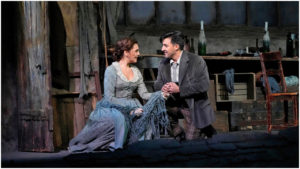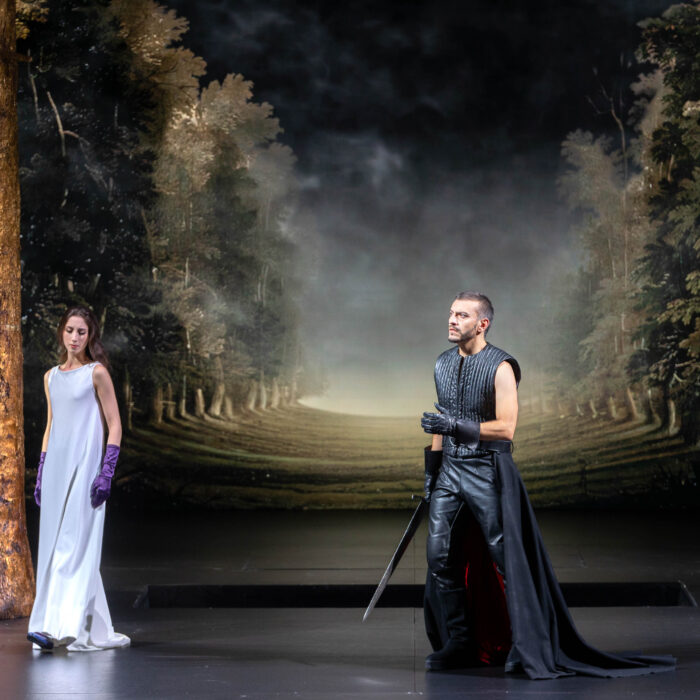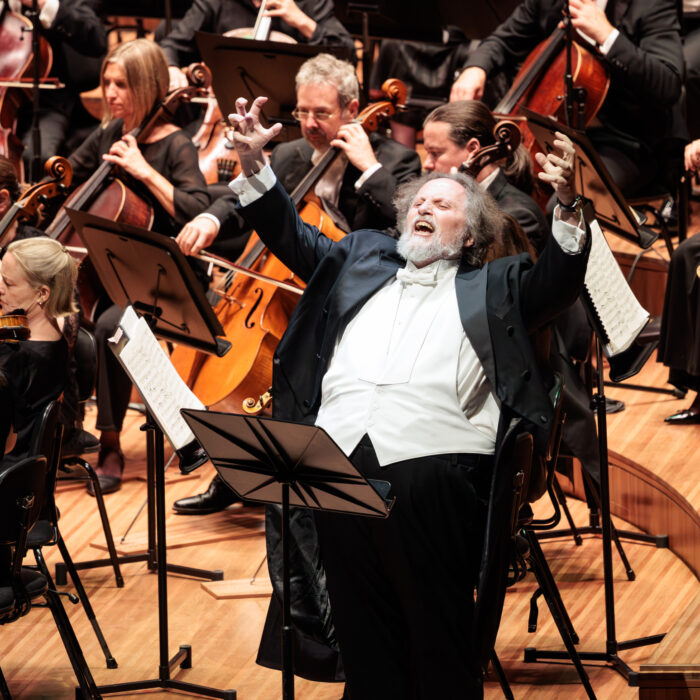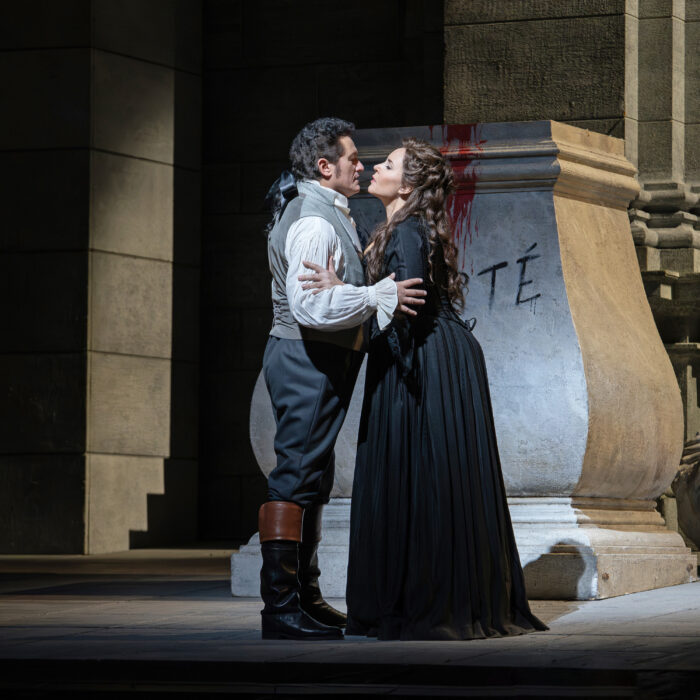
Metropolitan Opera 2021-22 Review: La Bohème
Maria Agresta & Charles Castronovo Lead Exciting Revival of Franco Zeffirelli Production
By Logan MartellJan. 13, 2022, saw the second performance in the Metropolitan Opera’s run of Puccini’s “La Boheme.” As the perennially-beautiful Zeffirelli production continues to delight, the evening’s cast, led by Maestro Carlo Rizzi, succeeded in bringing their passion and vitality to bear before the audience.
Outstanding Leads
Fresh from his work with the Berlin Staatsoper, Charles Castronovo was in fine form throughout in the role of Rodolfo. Following the search for Mimi’s key, Castronovo’s rendition of “Che gelida manina,” as he finally made physical contact with her, was a strong, well-supported delivery. His ardent tones were full of expression in the high B-flat on the line “chi son?” as he began to share his rich inner world with her. The resulting climatic note came with both ease and clarity, as Castronovo completed his trip back across the table to await her response. These qualities kept him at the forefront during denser, more hectic moments: such as the bustle and sound of Act two and the emotionally-charged Act three, where his concern for Mimi’s health was ripe with vocal heartache as his initial stoic façade crumbled.
In the role of Mimi, Maria Agresta was incredibly endearing in both vocal and dramatic expression. Following her bashful entrance, and momentary blackout upon Rodolfo’s table, their search for her key was both playful and charged with romance, as it led into their respective arias. Her rendition of “Si, mi chiamano Mimi” saw Agresta use excited trills as she described the flowers she made, before she launched, with charming fervour, into her step-wise exultation of beauty. This made her deterioration over Acts three and four all the more impactful, her delivery of “Donde lieta usci” both loving and agonized, with the mention of her bonnet coloring her resolve to separate with memories of their love: all was seen on her face and heard in her voice. Most poignant of all, naturally, was her death scene, which saw the return of earlier emotions and musical material such as the line “They call me Mimi but I don’t know why,” and her gasping reprise of Rodolfo’s “che gelida manina.”
Great Supporting Cast
As Musetta, Gabriella Reyes displayed a healthy and exuberant soprano who captivated from her Act two entrance, using her voice to power over the crowd in more conversational lines, and employ it more lyrically for her alluring rendition of “Quando me’n vo.” Here her lush, sustained phrases were capped off by her brief, sassy conclusion. Her exchanges and sparring with Marcello was a source of levity and fun which carried on throughout the revelry of Act two and the conflict of Act three. Her performance in Act four, however was a lovely change. We watched Reyes’ Musetta go from the coquette to the caretaker as she brings Mimi to Rodolfo and arranges for her medical treatment.
In the role of Marcello, Lucas Meachem deftly embodied the trusty friend and lovesick painter. Matching his gestures to the beat of drums just before his opening line, his rich baritone warmly set the mood for much of Act one, and carried the Bohemians’ exchange with Benoit with great comedic charm. He was a stalwart presence throughout most of Act three as he supported Mimi and Rodolfo, and the conflict which led into the captivating quartet “Addio dolce svegliare alla mattina!” The painter’s shifting moods were all treated with authenticity by Meachem, who possessed the wealth of tone and expressive nuance to illuminate it with great effect.
Rounding out the Bohemians were Alexander Birch Elliott as Schaunard and Peter Kellner as Colline. From his entrance, Elliot’s time on stage saw him energetic and grand in both voice and body, qualities which made the story of his new wealth all the more humorous, and played well into the way he managed to convince his friends to spend the night out on the town. Kellner added a ponderous gravity with his bass, as the philosopher commented on unfolding events such as the steamy reunion between Marcello and Musetta. His Act four aria “Vecchia zimarra senti” was a tender and provocative microcosm of thought on how precious objects and people alike enter and depart our lives, as Kellner brought the feelings of affection and appreciation to a hushed, almost grieving conclusion, backed by the tapering dirge from the orchestra.
Maestro Rizzi continues to demonstrate profound experience and insight into Puccini’s works, often weaving a breathtaking and romantic musical atmosphere. This was heard in earlier moments such as the way the orchestra and artists melded back together for the passion of “O soave fanciulla,” and in simpler instances such as the soft and snowy opening of Act three. The splendid set for Café Momus drew applause from the moment the curtain rose and it was nice to see a full chorus of artists arrayed about the stage to portray the liveliness of the second act.
Thursday’s performance had much to enjoy between the cast of stellar artists and the tried-and-true Zefirelli production which blends beauty and verismo sensibility. So long as performances are safe to attend amid the latest upsurge in COVID-19, audiences will not want to miss this run of Puccini’s ever-touching masterpiece.



